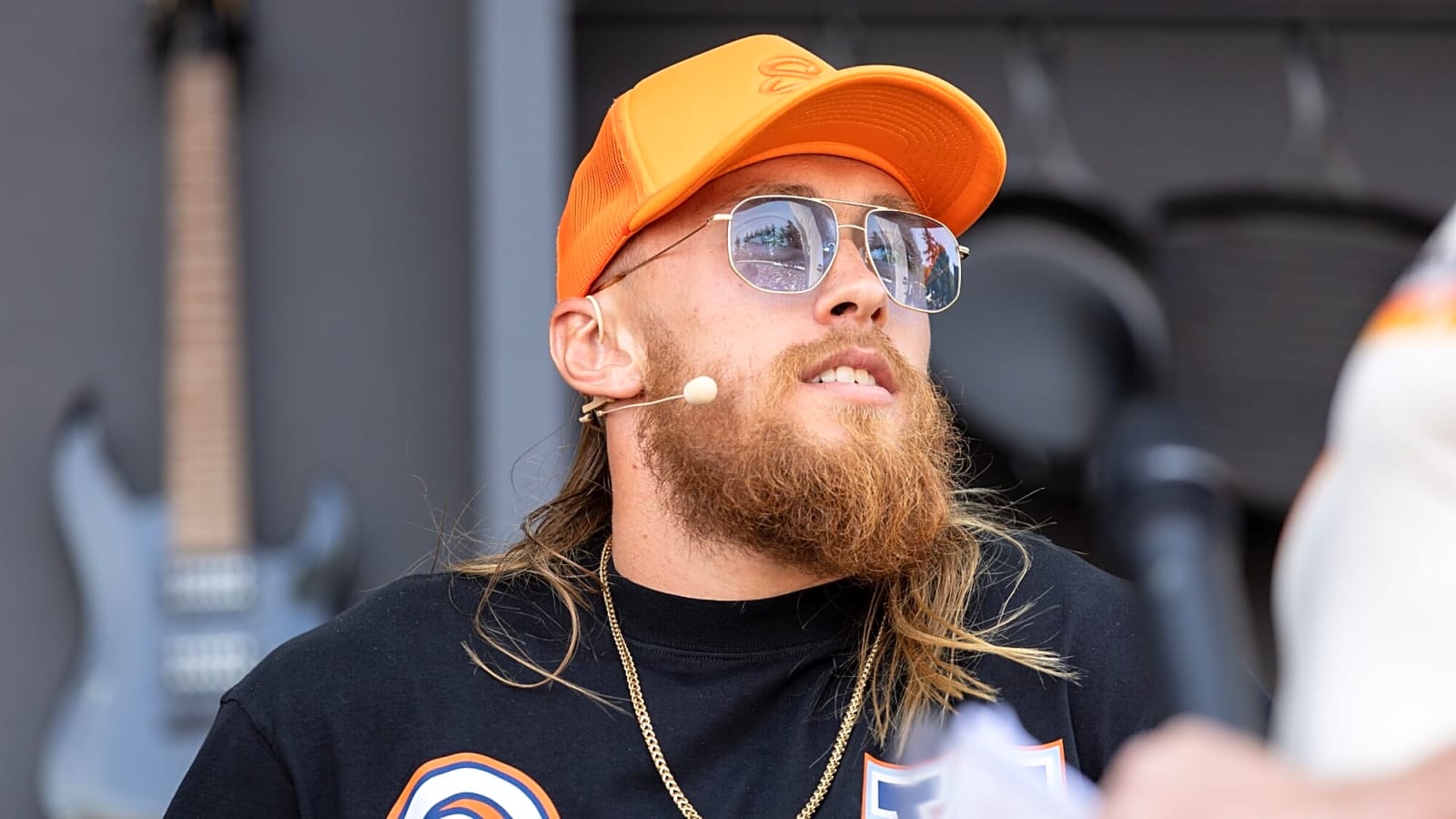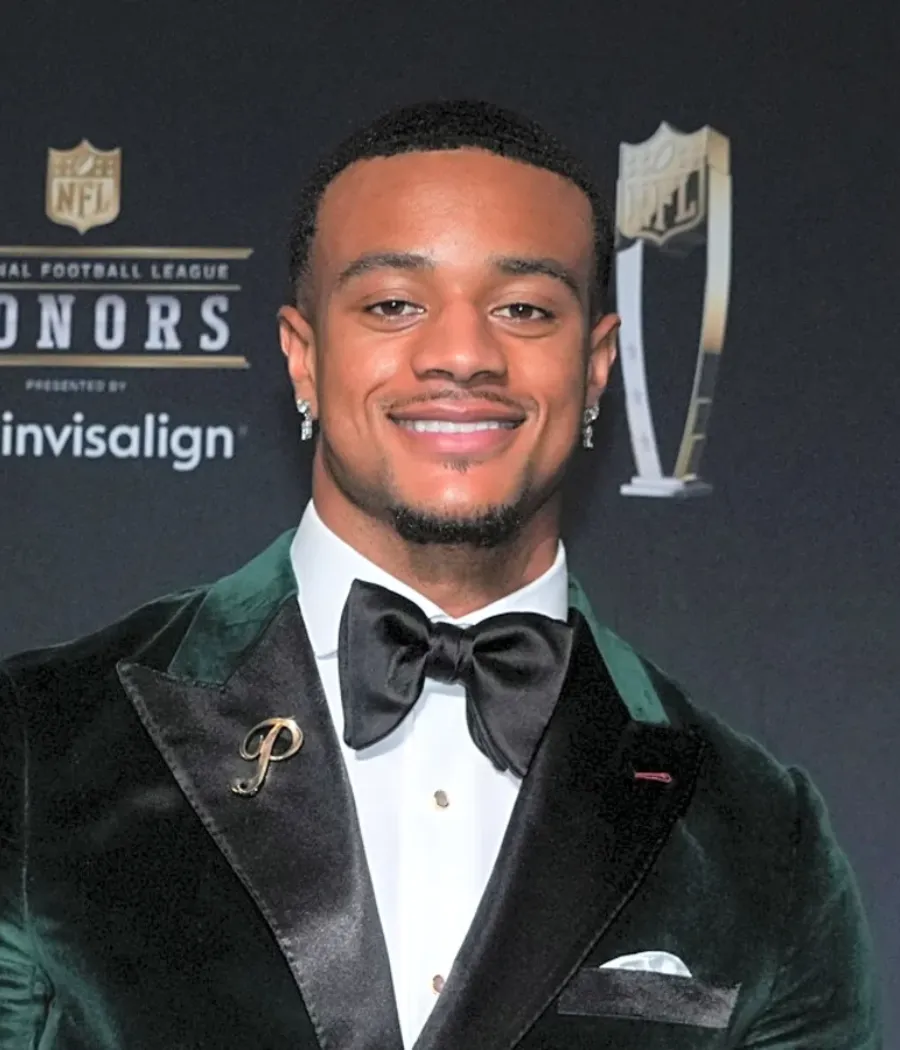
San Francisco 49ers tight end George Kittle is never one to shy away from giving a quote, and he provided several more on Monday around various issues surrounding the tight end position.
Kittle, recently the recipient of a new contract from the 49ers, has long sought to publicize the position he plays, trying to make it more prominent in the NFL media.
That resulted in the formation of the so-called ‘Tight End U’, with Kittle linking up with his contemporaries such as Travis Kelce and Greg Olsen to form a conglomerate of players who played at the position, the idea then being that they could continue to increase their skills and also the position’s profile.
Kittle has spoken out on Tight End U, while also taking a shot at the pay the position receives.
George Kittle wants Tight End U to improve players, increase pay
Speaking on the Dan Patrick show on Monday, Kittle outlined the goals of Tight End U, while also going on to explain why he feels that such an effort was needed.
“We try to talk about all the things a tight end does because we’re the only position that gets to do everything: Pass pro, run blocking, catching the football, scoring touchdowns, running the ball sometimes, so we kind of try to cover as much as we can in the limited time we have with these guys and just give them a step forward in their careers to help them make a team in the upcoming camp,” Kittle said.
“If you’re on an NFL roster or were in the last year, you’re invited. I talk about run blocking, pass protection, YAC. Those are things I focus on. Travis talks about his route tree, how he reads his coverages, Greg Olsen talks about his routes. Jordan Reed has spoken about his releases. This year Evan Engram is going to talk,” Kittle continued.
In explaining why this has gained such traction and has such importance, Kittle pointed to the level of pay at his position, contrasting how the market has evolved since their quest for further publicity.
“The only way for the tight end market to continue to grow is if everybody’s getting paid,” Kittle said. “That’s the only way to do it. You can’t just have one guy do it and then it just sits for three or four years because then you’re stuck and it’s stagnant and no one’s getting paid. We want everybody, I want everybody to have great seasons. I want everybody to have great games…so by the time that Brock Bowers is doing his contract in three years, he’s going for over $20 million, which he will. That’s just the whole point. When Tight End U first started, I think the top of the market was $15 million and now it’s $20 million.”
Kittle has a point on tight end contracts
Research into Kittle’s points reveals that there is indeed some truth to what he’s saying. Kittle’s newest deal made him the highest-paid tight end in the league, averaging $19.1m a year, which is up significantly from the types of deals handed out previously to T.J. Hockenson or Mark Andrews, both of whom average around the $14-16.5m mark.
Coupled with a newer deal handed out to the Arizona Cardinals’ Trey McBride earlier this offseason at $19m per year, there’s clearly some uptick in tight end contracts going on.
| Player | Team | Avg $/year |
| George Kittle | San Francisco 49ers | $19.1m |
| Trey McBride | Arizona Cardinals | $19m |
| Travis Kelce | Kansas City Chiefs | $17.125m |
| T.J. Hockenson | Minnesota Vikings | $16.5m |
| Mark Andrews | Baltimore Ravens | $14m |
Top 5 tight end contracts, per OverTheCap.com
However, with the wide receiver market still roughly double that in terms of average per year (Ja’Marr Chase’s Cincinnati Bengals extension, for instance paying out at a staggering $40m per year), there’s still some way to go to achieve anything close to competitive, let alone parity, in the salary stakes.
With no big tight end deals coming up, it might be a while before this topic is discussed again, although with the influx of young, exciting talent like Brock Bowers and Sam LaPorta, as well as newly drafted rookies like Tyler Warren and Colston Loveland, we may be seeing the gap continue to close over the next few years.
If it does, it may well be down to Kittle’s continued efforts to keep the position both in the news and in the minds of NFL general managers.
This article first appeared on NFL Analysis Network and was syndicated with permission.
-1752981043-q80.webp)


